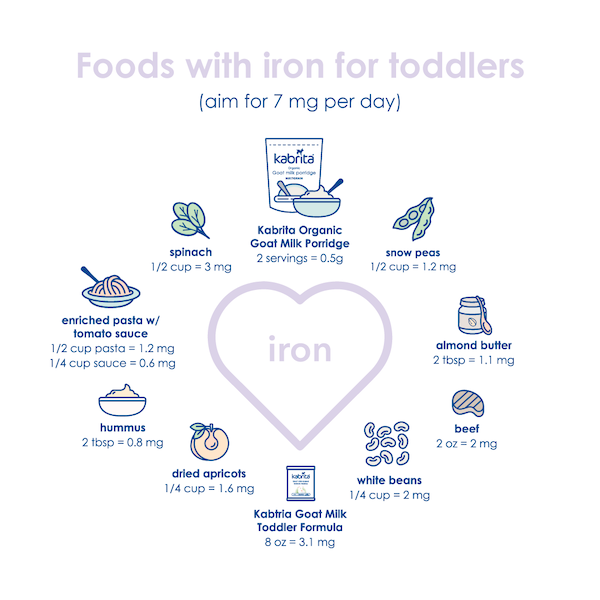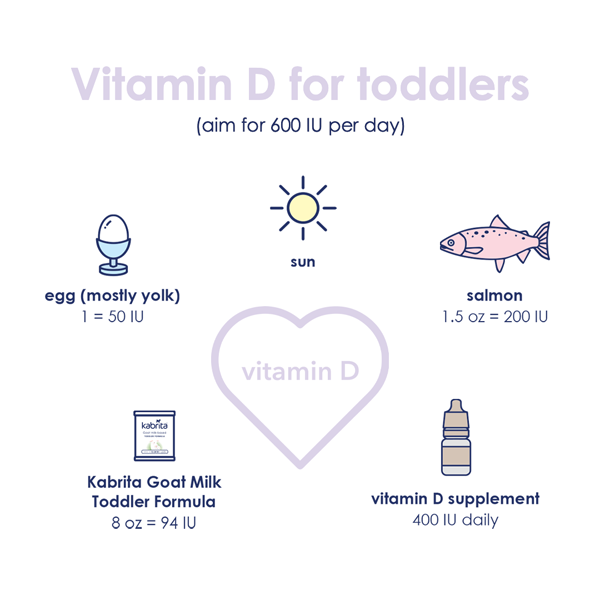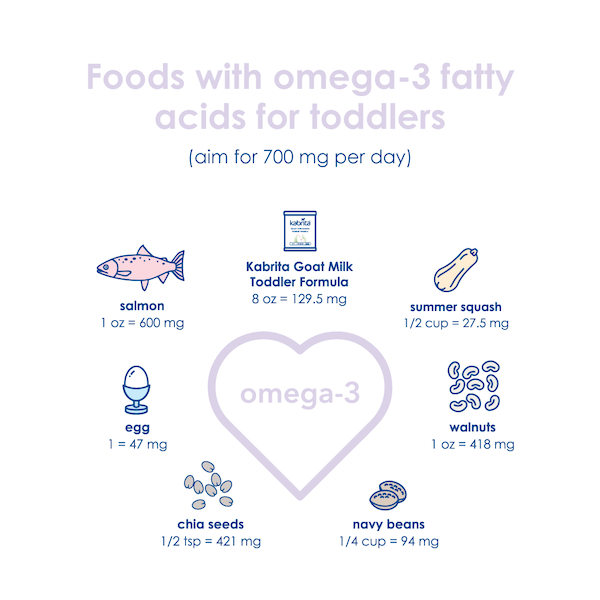Nutrient-Dense First Foods for Toddlers

While introducing solid food is a fun and exciting time for families, it may also come with questions and uncertainty. To help make the food introduction process as easy as possible, we’ve identified several core principles to help guide families. Read on to learn about one of these core principles, Nutrient-Dense, and how it applies to the introduction of baby’s First Foods.
Critical Nutrients for Toddlers
Throughout solid food introduction and early childhood, it’s important to provide foods that are nutrient-dense. Nutrient-dense foods will deliver important vitamins, minerals, fats, and protein little ones need for their rapid growth and development.
Iron, Vitamin D, and Omega 3 Fats are three critical nutrients to keep an eye on during solid food introduction. They all play a major role in the maintenance of health and early childhood development.
Foods with Iron for Toddlers
Iron deficiency is one of the most common nutrient deficiencies in children and may affect up to 15% of toddlers. Iron is vital and essential for delivering oxygen from the lungs to muscle and tissue in the rest of the body for energy. Inadequate iron intake may lead to a more serious condition called iron deficiency anemia, with associated symptoms such as paleness, lethargy, and shortness of breath.
Children under 12 months should aim for 11 mg of iron daily, while those one-to-four years should have 7 mg of iron each day. Along with a healthy diet that includes iron-rich foods, such as leafy greens, meat, nuts, and beans, Kabrita Goat Milk Toddler Formula can help children achieve adequate amounts of daily iron.

Foods with Vitamin D for Toddlers
Vitamin D is a fat-soluble vitamin that is made by the body when sunlight hits the skin. It is essential for healthy bones and increases the absorption of calcium. Severe deficiency may lead to rickets, causing very weak bones and increased risk of fracture. Vitamin D has many other functions, including neuromuscular development and immune function.
Vitamin D deficiency in the US is common, and as many as 60% of children may have insufficient levels. Low levels of vitamin D may be more common than you may think, since clothing and sunscreen also block the synthesis of vitamin D, and very few foods contain vitamin D.
The American Academy of Pediatrics recommends that infants receive 400 IU daily and increased recommended amount of vitamin D for toddlers to 600 IU per day. Food sources for vitamin D include salmon and fortified orange juice. Kabrita Goat Milk Toddler Formula can help children achieve adequate amounts of daily vitamin D.

Foods with Omega 3 Fats for Toddlers
Omega 3 fatty acids are essential and must be obtained through the diet, as the body cannot make them. DHA (docosahexaenoic acid) is a crucial omega-3 fatty acid that contributes to the brain, eye, and neurological development in children.
Since children’s brains grow rapidly during the infant and toddler stages, DHA is especially important to support development in the first two years of life. There are a number of studies that highlight the importance of DHA in infants and children. Positive effects have been observed in the developing visual system, as well as cognitive development. Omega 3 fatty acids, including DHA, also may positively influence other body systems, including the skin. Omega-3 fatty acids have an anti-inflammatory effect and may help reduce eczema symptoms.
The National Institute of Health recommends that infants take in 500 mg of omega 3 fatty acids daily, and toddlers 1-3 years should aim for 700 mg daily. Kabrita Goat Milk Toddler Formula can help children achieve adequate amounts of daily DHA.

Tips to Ensure Optimal Nutrient Intake for Toddlers
No parent wants to follow their little one around all day calculating fiber, sugar, or specific nutrient intakes! In fact, when it comes to making food choices, the American Academy of Pediatrics specifically recommends that parents consider their child’s whole diet pattern. This means that the best strategy is to choose and consume nutritious foods from each of the main food groups.
Here are three helpful tips to keep in mind when it comes to optimizing nutrient-dense first foods:
- Choose colorful fruits and vegetables that are naturally nutrient-dense.
- Offer a variety of foods and do not give up! Repetition is the key to success.
- Continue breastfeeding or supplement with a high-quality formula.
Kabrita Goat Milk Toddler Formula may be an option for little ones during feeding transitions, such as weaning and supplementing, or those with minor issues associated with cow milk sensitivity.
*Not suitable for children with confirmed cow milk protein allergy